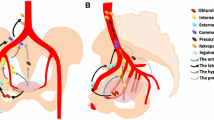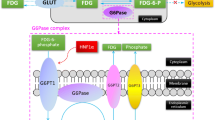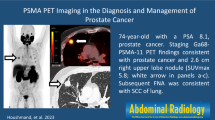Abstract
Imaging plays a vital role in the evaluation of peritoneal malignancies. The presence of peritoneal metastases (PM) alters tumor staging, with direct implications in treatment choice and prognosis. Cytoreductive surgery (CRS) and Hyperthermic intraperitoneal chemotherapy (HIPEC) as a combined modality treatment have led to prolonged survival and even cure in selected patients with PM. Better outcomes are seen in patients with limited disease spread. Therefore, early diagnosis of peritoneal tumor seeding is essential. Despite significant advancement of technology, assessment of the origin of PM is often difficult, due partly to the complex peritoneal anatomy and partly due to the complex overlap of imaging features. Multidetector CT (MDCT) is the main stay due to its wide availbility, rapid evaluation, robust technique and good resolution. Imaging plays a vital role in selecting patients for the combined modality treatment. MRI is not as popular as CT due to limited availability, time required for the study and lack of experience with interpreting the results. PET-CT is useful in ruling out extra peritoneal disease and it is the CT component that is more reliable for predicting the disease extent. This article reviews the current use of various imaging modalities in various stages of treatment of patients with PM especially those undergoing CRS and HIPEC.







Similar content being viewed by others
References
Meyers MA, Oliphant M, Berne AS, Feldberg MA (1987) The peritoneal ligaments and mesenteries: pathways of intraabdominal spread of disease. Radiology 163:593–604
Meyers MA (1973) Distribution of intra-abdominal malignant seeding: dependency on dynamics of flow of ascitic fluid. Am J Roentgenol Radium Therapy, Nucl Med 119:198206
Standring S. (2004) Peritoneum and peritoneal cavity. Grays anatomy: the anatomical basis of clinical. practice. 39th ed. Churchill Livingstone
Meyers MA (1973) Peritoneography: normal and pathologic anatomy. Am J Roentgenol Radium Therapy, Nucl Med 117:353–365
Meyers MA (2000) Dynamic radiology of the abdomen: normal and pathologic anatomy. Springer, New York, NY
Levy AD, Shaw JC, Sobin LH (2009) Secondary tumors and tumor like lesions of the peritoneal cavity: imaging features with pathologic correlation. Radio Graphics 29:347–373
DeMeo JH, Fulcher AS, Austin RF Jr (1995) Anatomic CT demonstration of the peritoneal spaces, ligaments, and mesenteries: normal and pathologic processes. Radiographics 15:75570
Coakley FV, Hricak H (1999) Imaging of peritoneal and mesenteric disease: key concepts for the clinical radiologist. Clin Radiol 54:56374
Rubenstein WA, Auh YH, Whalen JP, Kazam E (1983) The perihepatic spaces: computed tomographic and ultrasound imaging. Radiology 149:2319
Kneeland JB, Auh YH, Rubenstein WA, et al. (1987) Perirenal spaces: CT evidence for communication across the midline. Radiology 164:65764
Meyers MA (1970) Roentgen significance of the phrenicocolic ligament. Radiology 95:53945
Feldman GB, Knapp RC (1974) Lymphatic drainage of the peritoneal cavity and its significance in ovarian cancer. Am J Obstet Gynecol 119:991–994
Pannu HK, Horton KM, Fishman EK (2003) Thin section dual-phase multidetector-row computed tomography detection of peritoneal metastases in gynaecologic cancers. J Comput Assist Tomogr 27:33340
Coakley FV, Choi PH, Gougoutas CA, et al. (2002) Peritoneal metastases: detection with spiral CT in patients with ovarian cancer. Radiology 223:495–499
Franiel T, Diederichs G, Engelken F, Elgeti T, Rost J, Rogalla P (2009) Multi-detector CT in peritoneal carcinomatosis: diagnostic role of thin slices and multiplanar reconstructions. Abdom Imaging 34:4954
Marin D, Catalano C, Baski M, et al. (2010) 64-section multi-detector row CT in the preoperative diagnosis of peritoneal carcinomatosis: correlation with histopathological findings. Abdom Imaging 35:69470
deBree BE, Koops W, Kroger R, vanRuth S, Witkamp AJ, Zoetmulder FA (2004) Peritoneal carcinomatosis from colorectal or appendiceal origin: correlation of preoperative CT with intraoperative findings and evaluation of interobserver agreement. J Surg Oncol 86:6473
Low RN (2007) MR imaging of the peritoneal spread of malignancy. Abdom Imaging 32:26783
e Silva J. Abre, Magalhães M. J., Duarte H., Fernandes C., Ramos Alves S., Guimarães dos Santos A. (2013) M. V. P. G. Almeida;Porto/PT CT and PET-CT findings of peritoneal carcinomatosis ,ECR Educational Exhibit
Low RN, Barone RM, Lacey C, Sigeti JS, Alzate GD, Sebrechts CP (1997) Peritoneal tumor: MR imaging with dilute oral barium and intravenous gadolinium-containing contrast agents compared with unenhanced MR imaging and CT. Radiology 204:51320
Low RN (2009) Diffusion-weighted MR imaging for whole body metastatic disease and lymphadenopathy. Magn Reson Imaging Clin N Am 17:24561
Low RN, Sigeti JS (1994) MR imaging of peritoneal disease: comparison of contrast-enhanced fast multiplanar spoiled gradient-recalled and spin-echo imaging. AJR Am J Roentgenol 163:113140
Priest AN, Gill AB, Kataoka M, et al. (2010) Dynamic contrast-enhanced MRI in ovarian cancer: initial experience at 3 tesla in primary and metastatic disease. Magn Reson Med 63:10449
Fuji S, Matsusue E, Kanasaki Y, et al. (2008) Detection of peritoneal dissemination in gynecological malignancy: evaluation by diffusion-weighted MR imaging. Eur Radiol 18:1823
Low RN, Sebrechts CP, Barone RM, Muller W (2009) Diffusion weighted MRI of peritoneal tumours: comparison with conventional MRI and surgical and histopathologic findings: a feasibility study. AJR Am J Roentgenol 193:46170
McLean MA, Priest AN, Joubert I, et al. (2009) Metabolic characterization of primary and metastatic ovarian cancer by 1H-MRS in vivo at 3 T. Magn Reson Med 62:85561
Patel Chirag M., Sahdev Anju, and Reznek Rodney H. (2011) CT, MRI and PET imaging in peritoneal malignancy, Cancer Imaging 11, 123139
Turlakow A, Yeung HW, Salmon AS, Macapinlac HA, Larson SM. (2003) Peritoneal carcinomatosis: role of (18) F-FDG PET.J Nucl Med 44: 140712
Yoshida Y, Kurokawa T, Kawahara K, et al. (2004) Incremental benefits of FDG positron emission tomography over CT alone for the preoperative staging of ovarian cancer. AJR Am J Roentgenol 182:22733
Kitajima K, Murakami K, Yamasaki E, et al. (2008) Diagnostic accuracy of integrated FDG PET/contrast-enhanced CT in staging ovarian cancer: comparison with enhanced CT. Eur J Nucl Med Mol Imaging 35:191220
Kitajima K, Murakami K, Yamasaki E, et al. (2008) Performance of integrated FDG-PET/contrast-enhanced CT in the diagnosis of recurrent ovarian cancer: comparison with integrated FDG-PET/non-contrast-enhanced CT and enhanced CT. Eur J Nucl Med Mol Imaging 35:143948
Dirisamer A, Schima W, Heinisch M, et al. (2009) Detection of histologically proven peritoneal carcinomatosis with fused 18F-FDGPET/MDCT. Eur J Radiol 69:53641
Pannu HK, Cohade C, Bristow RE, Fishman EK, Wahl RL (2004) PETCT detection of abdominal recurrence of ovarian cancer: radiologic-surgical correlation. Abdom Imaging 29:398403
Gu P, Pan LL, Wu SQ, Sun L, Huang G. (2009) CA 125, PET alone,PET-CT, CT and MRI in diagnosing recurrent ovarian carcinoma: a systematic review and meta-analysis Eur J Radiol 71:16474.
Levy AD, Arnáiz J, Shaw JC, Sobin LH (2008) From the archives of the AFIP: primary peritoneal tumours: imaging features with pathologic correlation. Radiographics 28(2):583–607
Woodward PJ, Hosseinzadeh K, Saenger JS (2004) From the archives of the AFIP: radiologic staging of ovarian carcinoma with p pathologic correlation. Radiographics 24:22546
Matsuoka Y, Itai Y, Ohtomo K, Nishikawa J, Sasaki Y (1991) Calcification of peritoneal carcinomatosis from gastric carcinoma: a CT demonstration. Eur J Radiol 13:2078
Matsuoka Y, Ohtomo K, Itai Y, Nishikawa J, Yoshikawa K, Sasaki Y (1992) Pseudomyxoma peritonei with progressive calcifications: CT findings. Gastrointest Radiol 17:1618
.Mitchell DG, Hill MC, Hill S, Zaloudek C. (1986) Serous carcinoma of the ovary: CT identification of metastatic calcified implants. Radiology 158: 64952.
Amin Z, Reznek RH. (2009) Peritoneal metastases. In: Husband JE, Reznek RH, editors. Imaging in oncology. 3rd ed. InformaHealthcare p. 1094114
Kawamoto S, Urban BA, Fishman EK (1999) CT of epithelial ovarian tumors. Radiographics 19:S85102
Patel N, Taylor C, Levine E, Trupiano J, Geisinger K (2007) Cytomorphologic features of primary peritoneal mesothelioma in effusion, washing, and fine-needle aspiration biopsy specimens: examination of 49 cases at one institution, including post-intraperitoneal hyperthermic chemotherapy findings. Am J Clin Pathol 128:414–422
Husain AN, Colby TV, Ordóñez NG, Krausz T, Borczuk A, Cagle PT, Chirieac LR, Churg A, Galateau-Salle F, Gibbs AR, Gown AM, Hammar SP, Litzky LA, Roggli VL, Travis WD (2009) Wick Blackham and Levine E guidelines for pathologic diagnosis of malignant mesothelioma: a consensus statement from the international mesothelioma interest group. Arch Pathol Lab Med. 133:1317–1331.
Kannerstein M, Churg J (1977) Peritoneal mesothelioma. Hum Pathol 8:83–94
Cerruto D, Brun E, Chang D, Sugarbaker P (2006) Prognostic significance of histomorphologic parameters in diffuse malignant peritoneal mesothelioma. Arch Pathol Lab Med 130:1654–1661
Smith TR (1994) Malignant peritoneal mesothelioma: marked variability of CT findings. Abdom Imaging 19:279
van Ruth S, Bronkhorst MW, vanCoevorden F (2002) Zoetmulder FAPeritoneal benign cystic mesothelioma: a case report and review of the literature Eur J Surg Oncol 28:1925
Mok SC, Schorge JO, Welch WR, Hendricksen MR, Kempson RL (2003) Peritoneal tumours. In: Tavassoli FA, Devilee P (eds) Pathology and genetics of tumours of the breast and female genital organs. IARC, Lyon, pp. 197–202
Chiou SY, Sheu MH, Wang JH, Chang CY (2003) Peritoneal serous papillary carcinoma: a reappraisal of CT imaging features and literature review. Abdom Imaging 28:81519
Hayes-Jordan A, Anderson PM (2011) The diagnosis and management of desmoplastic small round cell tumor: a review. Curr Opin Oncol 23(4):385–389
Jain S, Palekar A, Monaco SE, Craig FE, Bejjani G, Pantanowitz L (2015) Human immunodeficiency virus-associated primary effusion lymphoma: an exceedingly rare entity in cerebrospinal fluid. Cyto Journal 12:22. doi:10.4103/1742-6413.168059
Walkey MM, Friedman AC, Sohotra P, Radecki PD (1988) CT manifestations of peritoneal carcinomatosis. AJR Am J Roentgenology 150:103541
Sheth S, Horton KM, Garland MR, Fishman EK (2003) Mesenteric neoplasms: CT appearances of primary and secondary tumors and differential diagnosis. Radiographics 23:457–473 . doi:10.1148/rg.232025081quiz 535-536
Oliphant M, Berne AS (1982) Computed tomography of the sub peritoneal space: demonstration of direct spread of intraabdominal disease. J Comput Assist Tomogr 6:1127–1137. doi:10.1097/00004728-198212000-00014
Sugarbaker PH (1994) Pseudomyxoma peritonei. A cancer whose biology is characterized by a redistribution phenomenon. Annals of Surgery 219(2):109–111
Lengyel E (2010) Ovarian cancer development and metastasis. The American Journal of Pathology 177(3):1053–1064. doi:10.2353/ajpath.2010.100105
Karaosmanoglu D, Karcaaltincaba M, Oguz B, Akata D, Ozmen M, Akhan O (2009) CT findings of lymphoma with peritoneal, omental and mesenteric involvement: peritoneal lymphomatosis. Eur J Radiol 71:313–317. doi:10.1016/j.ejrad.2008.04.012
Le O (2013) Patterns of peritoneal spread of tumor in the abdomen and pelvis. World Journal of Radiology 5(3):106–112. doi:10.4329/wjr.v5.i3.106
Patel CM, Sahdev A, Reznek RH (2011) CT, MRI and PET imaging in peritoneal malignancy. Cancer Imaging 11(1):123–139. doi:10.1102/1470-7330.2011.0016
Pai RK, Longacre TA (2007) Pseudomyxoma peritonei syndrome: classification of appendiceal mucinous tumours. In: Ceelen WP (ed) Peritoneal carcinomatosis:a multidisciplinary approach. Springer, New York, NY, pp. 71–107
Bradley RF, Stewart JH, Russell GB, Levine EA, Geisinger KR (2006) Pseudomyxoma peritonei of appendiceal origin: a clinicopathologic analysis of 101patients uniformly treated at a single institution, with literature review. Am J Surg Pathol 30:551–559
Carr NJ, Arends MJ, Deans GT, Sobin LH (2000) Adenocarcinoma of the appendix. In: Aaltonen LA, Hamilton SR (eds) World Health Organization classificationof tumours: pathology and genetics of tumours of the digestive system. IARC, Lyon, France, pp. 95–102
Ronnett BM, Zahn CM, Karman RJ, Kiss ME, Sugarbaker PH, Shmookler BM (1995) Disseminated peritoneal adenomucinosis and peritoneal mucinous carcinomatosis: a clinicopathologic analysis of 109 cases with emphasis on distinguishing pathologic features, site of origin, prognosis, and relationship to“pseudomyxoma peritonei. Am J Surg Pathol 19:1390–1408
Pestieau SR, Esquivel J, Sugarbaker PH (2000) Pleural extension of mucinous tumor in patients with pseudomyxoma peritonei syndrome. Ann Surg Oncol 7:199–203
Vagenas K, Stratis C, Spyropoulos C, Spiliotis J, Petrochilos J, Kourea H, Karavias D (2005) Peritoneal carcinomatosis versus peritoneal tuberculosis: a rare diagnostic dilemma in ovarian masses. Cancer Therapy Vol 3:489–494
Groutz A, Carmon E, Gat A (1998) Peritoneal tuberculosis versus advanced ovarian cancer: a diagnostic dilemma. Obstet Gynecol 91(5 Pt 2):868
Bilgin T, Karabay A, Dolar E, Develioglu OH (2001) Peritoneal tuberculosis with pelvic abdominal mass, ascites and elevated CA 125 mimicking advanced ovarian carcinoma: a series of 10 cases. Int J Gynecol Cancer 11:290–294
Gosein MA, Narinesingh D, Narayansingh GV, Bhim NA, Sylvester PA (2013) Peritoneal tuberculosis mimicking advanced ovarian carcinoma: an important differential diagnosis to consider. BMC Research Notes 6:88. doi:10.1186/1756-0500-6-88
Da Rocha EL, Pedrassa BC, Bormann RL, Kierszenbaum ML, Torres LR, D’Ippolito G (2015) Abdominal tuberculosis: a radiological review with emphasis on computed tomography and magnetic resonance imaging findings. Radiologia Brasileira 48(3):181–191. doi:10.1590/0100-3984.2013.1801
Verwaal VJ, Kusamura S, Baratti D, et al. (2008) The eligibility for local-regional treatment of peritoneal surface malignancy. J Surg Oncol 98:220–223
Yan TD, Morris DL, Kusamura S, et al. (2008) Preoperative investigations in the management of peritoneal surface malignancy with cytoreductive surgery and perioperative intraperitoneal chemotherapy. J Surg Oncol 98:224–227
Low RN (2016) Preoperative and surveillance MR imaging of patients undergoing cytoreductive surgery and heated intraperitoneal chemotherapy. J Gastrointes Oncol 2. doi:10.3978/j.issn.2078-6891.2015.11
Torkzad MR, Casta N, Bergman A, Ahlström H, Påhlman L, Mahteme H. (2015) Comparison between MRI and CT in prediction of peritoneal carcinomatosis index (PCI) in patients undergoing cytoreductive surgery in relation to the experience of the radiologist. J Surg Oncol 111(6):746–51. doi: 10.1002/jso.23878.
Dromain C, Leboulleux S, Auperin A, et al. (2008) Staging of peritoneal carcinomatosis: enhanced CT vs. PET/CT. Abdom Imaging 33:87–93
Iafrate F, Ciolina M, Sammartino P, et al. (2011) Peritoneal carcinomatosis:imaging with 64-MDCT and 3 T MRI with diffusion weighted imaging. Abdom Imaging
Bernhard Daniel Klumpp, Schwenzer Nina, Aschoff Philip, Miller Stephan, Kramer Ulrich, Claussen ClausD., Bruecher Bjoern, Koenigsrainer Alfred, fannenberg Christina P (2012) Preoperative assessment of peritoneal carcinomatosis: intraindividual comparison of 18F-FDG PET/CT and MRI,Abdom Imaging doi: 10.1007/s00261-012-9881-7
Jacquet P, Sugarbaker PH (1996) Clinical research methodologies in diagnosis and staging of patients with peritoneal carcinomatosis. Cancer Treat Res 82:359–374
Jacquet P, Jelinek JS, Steves MA, Sugarbaker PH (1993) Evaluation of computed tomography in patients with peritoneal carcinomatosis.Cancer 72:1631–1636
Goéré D, Souadka A, Faron M, Cloutier AS, Viana B, Honoré C, Dumont F, Elias D (2015) Extent of colorectal peritoneal carcinomatosis: attempt to define a threshold above which HIPEC does not offer survival benefit: a comparative study. Ann Surg Oncol 22(9):2958–2964
Coccolini F, Catena F, Glehen O, Yonemura Y, Sugarbaker PH, Piso P, Montori G, Ansaloni L (2015) Complete versus incomplete cytoreduction in peritoneal carcinosis from gastric cancer, with consideration to PCI cut-off. Systematic review and meta-analysis. Eur J Surg Oncol 41(7):911–919
Chua TC, Moran BJ, Sugarbaker PH, Levine EA, Glehen O, Gilly FN, Baratti D, Deraco M, Elias D, Sardi A, Liauw W, Yan TD, Barrios P, Gómez Portilla A, de Hingh IH, Ceelen WP, Pelz JO, Piso P, González-Moreno S, Van Der Speeten K, Morris DL (2012) Early- and long-term outcome data of patients with pseudomyxoma peritonei from appendiceal origin treated by a strategy of cytoreductive surgery and hyperthermic intraperitoneal chemotherapy. J Clin Oncol 30(20):2449–2456
Esquivel J, Elias D, Baratti D, Kusamura S, Deraco M (2008) Consensus statement on the loco regional treatment of colorectal cancer with peritoneal dissemination. J Surg Oncol 98:263
Jacquet P, Jelinek JS, Chang D et al. (1995) Abdominal computed tomographic scan in the selection of patients with mucinous peritoneal carcinomatosis for cytoreductive surgery Journal of the American College of Surgeons 181: 530–538.
Cotte E, Passot G, Gilly F-N, Glehen O (2010) Selection of patients and staging of peritoneal surface malignancies. World Journal of Gastrointestinal Oncology 2(1):31–35. doi:10.4251/wjgo.v2.i1.31
Yan TD, Haveric N, Carmignani P, Chang D, Sugarbaker PH (2005) Abdominal computed tomography scans in the selection of patients with malignant peritoneal mesothelioma for comprehensive treatment with cytoreductive surgery and perioperative intraperitoneal chemotherapy. Cancer 15:839–849. doi:10.1002/cncr.20836
Author information
Authors and Affiliations
Corresponding author
Rights and permissions
About this article
Cite this article
Krishnamurthy, S., Balasubramaniam, R. Role of Imaging in Peritoneal Surface Malignancies. Indian J Surg Oncol 7, 441–452 (2016). https://doi.org/10.1007/s13193-016-0539-8
Received:
Accepted:
Published:
Issue Date:
DOI: https://doi.org/10.1007/s13193-016-0539-8




